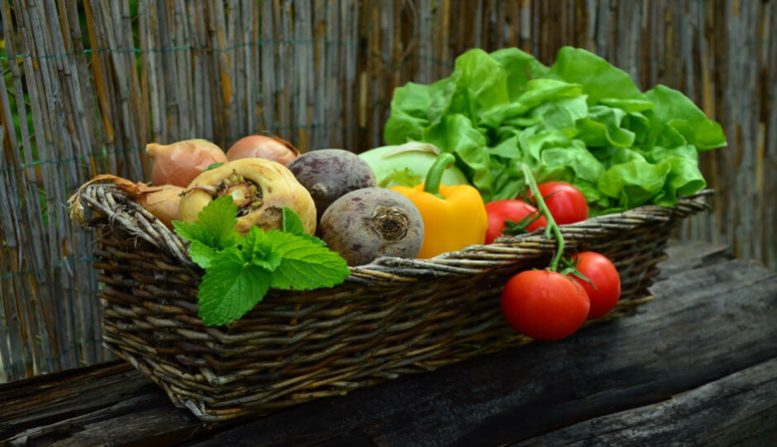The Power Of Food Businesses To Do Good
Last Updated on February 23, 2023
One dark, damp evening just before Christmas, my partner and I turned up at a local supermarket. The Fresh Produce Manager, who was expecting us, proudly handed over thirteen crates of assorted produce and helped us stack them in our campervan.
There were carrots, satsumas, potatoes, grapes, parsnips, Brussels sprouts, little pots of fresh herbs, lettuces, a melon or two and a LOT of beetroot. All appeared to be in perfect condition, but there was one thing wrong. They had passed their Best Before date and would be thrown out unless we could use them quickly.
The next day we dropped the food off at various charities around town. Several crates, including the sprouts and satsumas, would find their way into a church Christmas dinner, and a hostel for homeless people took much of the rest. It was satisfying to think of the herbs going into stuffing, of the fruit sitting in a bowl to grace the hostel table, of the solid nutrition for people who perhaps didn’t always eat so well, and even of the cash that hard-pushed charities could save on their bills.
Grocery Stores & Food Waste
We were working a shift for a surplus food distribution group that sprang up recently in response to public outcry about food waste. According to FAO figures, roughly one third of all food grown is lost or wasted at some point between the farmer’s field and our stomachs. It is built into the way food is handled, from the outgrading of misshapen fruit and the Buy One Get One Free offers that encourage customers to buy more than they need, to the public expectation that shops will always be stocked with everything and the fact that for most of us food is cheap enough to waste.
Surplus food waste redistribution takes many forms. There are dedicated organizations such as FareShare, community fridges both literal and virtual, apps and surplus food cafes. Where I live, a group of volunteers pick up produce from two supermarkets which they pass on to a handful of charities. Once a month or so they use it for a community meal, bringing people together and raising money for local causes like the community garden.
There is no doubt that the exchange meets a need on both sides. Supermarkets hate the bad press that results from sending perfectly good food to landfill while demand for food banks is rising, and for charities and community groups it’s a nearly-free resource that can save money, generate goodwill and bring people together. But it’s worth a look at what’s going on under the surface.
The Shift From Consumer To Citizen
Talking to shop staff it’s clear how much they enjoy the chance to do something useful. After all, it’s their local community too.
For every supermarket worker who sticks to their job description and accepts the routine waste of good food, another is thrilled to do a bit extra.
As we accepted our random abundance of food from the supermarket worker that December evening, our shared good deed felt like a triumph of common sense over the system, and we celebrated.
What if that spirit of common humanity was allowed to direct our food system?
The story of profits and shareholders is not the only one. It’s a noble calling to feed people, as food businesses do, and we are missing something if we assume that making money is what they are really about. As Henry Ford said, business that makes nothing but money is a poor business. We need to tell a bigger story.
In our local communities we know the power of relationship and generosity. We sense that it’s a stronger story in the end than the one about money. And that spirit lives just as strongly in the people who work in the food industry. Now is the time to name it, so that we unleash the power of business to do good: for our health, for our farming systems, for our communities.
It’s the shift from the consumer to the citizen. One is passive, the other is able and ready to help shape the world in which they live. In the UK the New Citizenship Project has been asking; Could a small shift in thinking from Consumer to Citizen make a big difference in our food system? Let’s see what we come up with.
Author: Jane Powell
Jane is a freelance writer and education consultant based in Wales, UK. She is interested in how an approach based on values can help us find common ground from which to transform our food system, and she can be found at www.foodsociety.wales.
Feeling Motivated To Do Good?
If you are interested to learn more about Fareshare or other similar organizations (Toronto FoodShare) and there are various ways to get involved. FoodGrads have partnered with Universities Fighting World Hunger (UFWH) to help encourage colleges/universities to get involved and fight hunger which includes food waste programs.
If you are a student and want to be part of the movement, we can help you get involved–and commend you on taking action to make a difference!
Subscribe to our newsletter for details on mentorship sessions, workshops, webinars, as well as career and job fairs across Canada and the US!



leave your comment